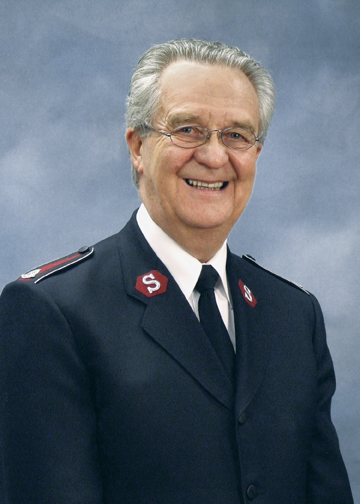
New chief secretary shares how integrated mission continues to shape his life and ministry
Interview with Lt-Colonel Donald Copple
Shortly after Lt-Colonel Donald Copple assumed his new responsibility as chief secretary on March 1, Lt-Colonel Ray Moulton,editor-in-chief, took the opportunity to interview him in his office at THQ.
How did you first meet The Salvation Army and begin your journey with God in it?
I grew up in a small community in northern Saskatchewan just outside Flin Flon, Man. As a teenager, I spent most of my evenings hanging around the local pool hall, where every Friday night the Salvation Army officer, Brigadier Bill Carey, came by selling The War Cry. He engaged me in conversation and invited me to come along to the local corps. I knew little about the Army and even less about the Church. A few days later, some Salvation Army young people came up to me at school and made a point of introducing themselves to me. They asked me to have lunch with them and invited me to come out to youth group. That was in 1959 and I have been going to the Army ever since.
I was intrigued by the young people and how they were interacting on behalf of social justice issues. I don’t think they knew what to call it in those days, but they were working with First Nations people in after-school programs, literacy programs and those kinds of things. As I think about it now, The Salvation Army in that community was made up of a whole lot of people, mainly teenagers. I was impressed at how this kind of work was being pushed and carried by a bunch of kids, along with some older adults.
What led you to consider God’s call on your life?
I was very impressed with the kind of selfless commitment I witnessed in those Salvationists, particularly on the part of the corps officers to their people and to the community. It seemed to me that to live like that would be a worthwhile way to spend one’s life. As I became more and more involved in the Army, I was intrigued by the life, work and ministry that the Army offered. I still remember a number of the old stalwarts in the corps who made a profound impression upon me as a young person. They showed me what a simple life well lived could accomplish, what it could look like.
In your new role, you’ve expressed an interest in exploring integrated mission with our readers. You’ve become known through your previous corps and administrative appointments as being very relational, a person who has understood and cared about those with whom you have worked. Integrated mission is very much based on relationships. How do you understand this term and its approach to ministry?
I have a strong appreciation for The Salvation Army as an institution. But I recognize that within the context of the Army-both as a church and an organization-there are individuals, and each one has an opportunity to infiltrate the community where they live, work and worship. In all of those communities, every Salvationist has the opportunity to be light and salt-to help the people with whom they come into contact to understand the gospel message. This gospel is not just the regeneration of the human spirit. It’s also the redemption of culture, the redemption of society.
I think of one young officer for whom I have a great deal of respect. Whenever I ask him, “What are you doing today?â€, he replies, “I am saving the world.†Now the task in which he is currently involved might be very focused and quite small. It might only concern one or two other people. But in the broader sense, that is what he is doing-saving the world. To a large degree, that’s what integrated mission is. It’s the individual Christian-in our case the individual Salvationist-making a positive impact in the neighbourhood where they live, in their working environment and where they choose to worship.
It’s more than just providing a bag of groceries or a night’s accommodation.
Yes, it’s much more than that. It’s assisting people to find their own solution to their circumstances. It’s helping people come to terms with the things that drove them to be where they are and what they are, and to begin figuring that out and working that out-redeeming themselves, in the best sense of the word.
How does your role as chief secretary provide opportunity to apply integrated mission principles or encourage integrated mission throughout the territory?
The primary role of any headquarters, whether on a divisional or territorial level, is to support the work of local ministry units. In terms of integrated mission, what we do is provide the resources where our people can come to understand the basic principles. When they can begin to understand the whole concept of relational theology they can start to apply that to their day-to-day lives.
We have an alarming tendency in today’s culture to compartmentalize our lives. We must teach Salvationists and others who worship with us that the Church, especially The Salvation Army, is not about little pockets of life. We have to roll up our sleeves and become involved at every level with individuals-the people with whom we work and worship.